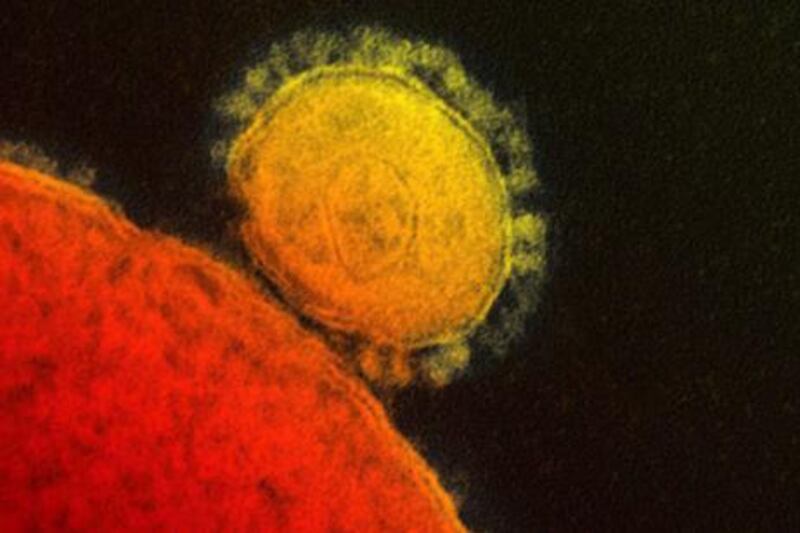ABU DHABI // An Emirati man has died after being infected with the Mers coronavirus.
The man, 82, is the first confirmed death in the UAE of someone infected with the Middle East respiratory syndrome coronavirus, known as Mers-CoV.
He died this month and was not known to have travelled abroad, the World Health Organisation said.
The patient had been undergoing chemotherapy for the past two years, the WHO said. Patients with pre-existing conditions are known to be susceptible to the coronavirus.
"He presented with acute respiratory distress on July 6," a spokesman for the organisation said yesterday. "His condition deteriorated and he was hospitalised in ICU on July 8 and confirmed with Mers on July 10."
The details were provided after the WHO announced on Wednesday that "a previously laboratory-confirmed case from the UAE has died".
The man was the first case to be confirmed within the UAE. Previous cases were confirmed only after the patients left for treatment abroad.
An Emirati man died in hospital in Germany in March and a Frenchman who visited Dubai died in May.
The latest Emirati case was being treated for bone-marrow cancer when his infection was diagnosed, the state news agency Wam reported in July.
That month it was reported that four Abu Dhabi doctors involved in treating him had also been infected with the coronavirus.
The healthcare workers were from two hospitals. At the time the Health Authority Abu Dhabi said the four, all in stable conditions, had been isolated.
The WHO said that of those four, a man, 28, and a woman, 30, did not have symptoms. The others, women aged 30 and 40, had mild respiratory problems.
No update was provided on their condition yesterday.
Dr Ulrich Wernery, scientific director of the Central Veterinary Research Laboratory in Dubai, said he had told authorities his high-security laboratory had the resources to conduct tests for Mers.
Dr Wernery said it was possible the latest Emirati victim contracted the virus in the UAE but, "the most likely possibility is that he has had contact with people who have travelled and caught it somewhere and then infected him".
He said the virus was known to be contagious in humans.
"The source of the virus is completely unknown so far but we will find it one day, that's for sure," he said. "But we have to search for it and it might take quite a while."
Scientists at Columbia University have said an Egyptian tomb bat has been found to harbour a virus genetically identical to Mers.
This month Bloomberg reported that the bat's faeces tested positive for the virus and it was the first time researchers had been able to pinpoint a specific animal host for the pathogen.
The finding was published in the journal Emerging Infectious Diseases.
The droppings from the bat were reportedly collected a few kilometres from the home of the first-known victim of Mers, in Saudi Arabia.
On Wednesday, the WHO announced it had been informed of another eight laboratory-confirmed cases of Mers infection in Saudi Arabia.
They included two men with underlying medical conditions from Riyadh, who died.
Globally, since September last year, it has been told of 104 laboratory-confirmed cases of infection, including 49 deaths.
The first case of Mers linked to the UAE was that of a 73-year-old Abu Dhabi man, who was treated at Mafraq Hospital before he was moved to Germany.
The Emirati, who had a history of cancer, died in a Munich hospital on March 26, 11 days after developing flu-like symptoms.
WHO has also been told of two laboratory-confirmed Mers infections in Qatar.
One, a 59-year old man with an underlying medical condition, became ill on August 15. He is in a stable condition in hospital.
Preliminary investigations show he travelled to Medina in Saudi Arabia for six days and returned to Qatar on the day he became sick.
The second patient is a man, 29, with an underlying medical condition who had no history of recent travel outside the country.





